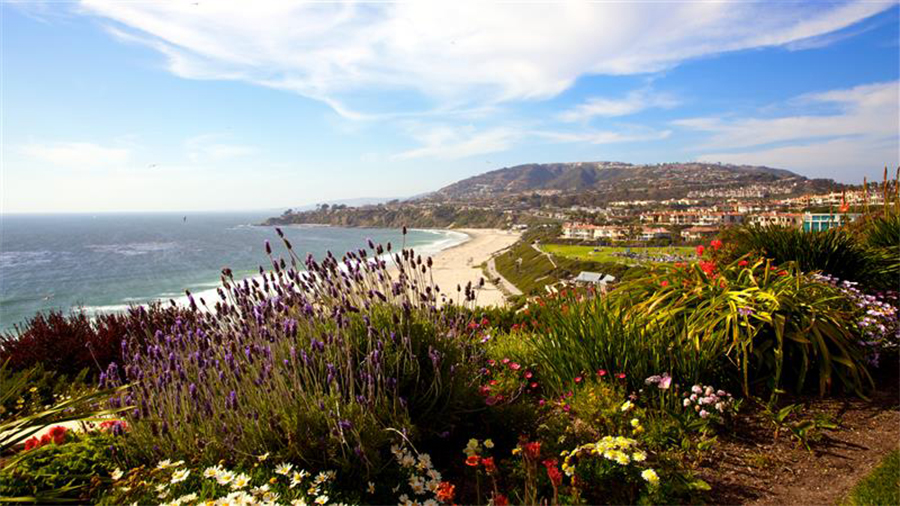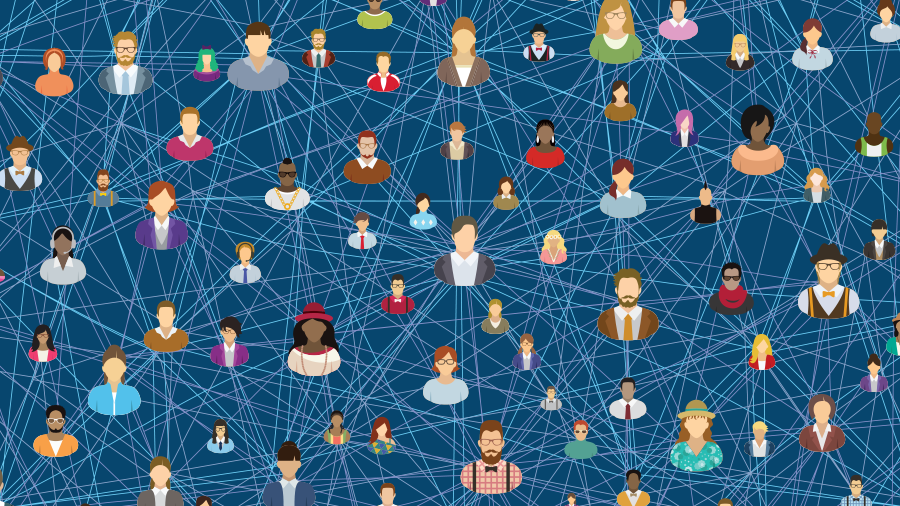Calendar of events, awards and opportunities
Every week, we update this list with new meetings, awards, scholarships and events to help you advance your career. If you’d like us to feature something that you’re offering to the bioscience community, email us with the subject line “For calendar.” ASBMB members’ offerings take priority, and we do not promote products/services. Learn how to advertise in ASBMB Today.

Today: It's time to renew your ASBMB membership
Please take a moment to renew your ASBMB membership. Contact us at membership@asbmb.org or 240-283-6604 if you need assistance.
Apply to be an intern at the White House science office
The White House Office of Science & Technology Policy is advertising paid internships. The office is responsible for advising the president and his team about all sorts of science and technology issues. Learn more if you're considering a career in science policy.
Oct. 17–21: NASA bridge program workshop
The NASA Science Mission Directorate Bridge Program is intended to improve diversity, equity, inclusion and accessibility at NASA and in the broader STEM community. The agency seeks to partner with minority-serving institutions, primarily undergraduate institutions and Ph.D.-granting universities and provide paid research student positions "to transition science and engineering students from undergraduate studies into graduate schools and employment by NASA," according to the announcement. A virtual workshop will be held from Oct. 17 through Oct. 21. You have to formally express interest in attending. Learn more.
ASIP virtual seminars of interest
The American Society for Investigative Pathology is running a series of young investigator keynote talks through the end of the year. Here's the lineup. Register.
Oct. 19: Investigating Calcium Dysregulation and Viral Virulence Using Forward and Reverse Genetics — Thomas Gebert, Baylor College of Medicine
Nov. 16: Modeling Glut1 Deficiency Syndrome at the Human Blood-Brain Barrier In Vitro Using CRISPR-Cas9 Edited Induced Pluripotent Stem Cells — Iqra Pervaiz, Texas Tech University of Health Sciences
Dec. 14: Mechanisms of IL-6-driven Endothelial Dysfunction — Ramon Bossardi Ramos, Albany Medical College

Oct. 26: ASBMB Lipid Research Division Seminar Series
The ASBMB Lipid Research Division features the work of young investigators in this monthly seminar. If you are interested in presenting, please contact John Burke. Register once to access the whole series.

Oct. 26: Webinar about women’s dead-end work
Across industries, jobs and levels of seniority, women carry a heavier load of tasks that support the organization but do not advance careers. In this discussion, we’ll explore why this happens and what you can do to manage your nonpromotable tasks. The first 20 people who register for the webinar will receive the book "The No Club: Putting a Stop to Women’s Dead-End Work." One of the authors, Laurie Weingart, will be a speaker. Register.

Nov. 2: ASBMB Virtual Career Expo
Save the date for the ASBMB Career Expo. This virtual event aims to highlight the diversity of career choices available to modern biomedical researchers. No matter your career stage, this expo will provide a plethora of career options for you to explore while simultaneously connecting you with knowledgeable professionals in these careers. Each 60-minute session will focus on a different career path and will feature breakout rooms with professionals in those paths. Attendees can choose to meet in a small group with a single professional for the entire session or move freely between breakout rooms to sample advice from multiple professionals. Sessions will feature the following five sectors: industry, government, science communication, science policy and other. The expo will be held from 11 a.m. to 5 p.m. Eastern on Nov. 2. Register.
Nov. 6: Deadline for policy-related papers
The Journal of Science Policy & Governance and the National Science Policy Network issued a call for papers for an issue containing policy ideas from the next generation of scientists. The submission deadline is Nov. 6. They encourage submissions "that highlight policy opportunities and audiences related to the 2022 U.S. midterm elections at the local, state or national level as well as related foreign policy issues." Read the press release.

Nov. 7: Webinar on debunking misinformation
This webinar will provide an overview of the science of misinformation and strategies for debunking misinformation. John Cook, research assistant professor at the Center for Climate Change Communication at George Mason University, founder of Skeptical Science website, and co-author of "The Debunking Handbook 2020" will be the featured presenter. Cook will apply debunking strategies to misinformation that occurs with biochemistry and molecular biology topics. Attendees will have an opportunity to ask questions about how to apply these strategies to their own research, and just in time for Thanksgiving dinner interactions with friends and family! Register.
Nov. 8: Apply for Ben Barres Spotlight Awards
The journal eLife let us know that they're accepting applications through Nov. 8 for their Ben Barres Spotlight Awards, now in their fourth year. These awards "will provide visibility and funds of up to $5,000 to researchers from groups that are underrepresented in biology and medicine or from countries with limited research funding," according to the award webpage. See past winners and learn more about the program.
Nov. 9: Applications due for DOE grad student awards
The Department of Energy is accepting applications through Nov. 9 for its Office of Science Graduate Student Research Awards program, which places grad students doing thesis research at national labs or other host site in collaboration with agency scientists. Application assistance workshops are scheduled for Sept. 19 and Oct. 20. Learn more.
Nov. 11: Rising Black Scientists Award essay deadline
Cell Press launched its annual Rising Black Scientists Award essay competition. "The award is meant to break down barriers and create opportunities by providing funds to support professional development," the award site says. There will be four winners: two undergrads and two grad students or postdocs. Read the prompt and submit.

Nov. 14: ASBMB fellows nominations due
Fellows of the American Society for Biochemistry and Molecular Biology are recognized for their contributions to the society and their contributions advancing the molecular life sciences, whether that's through research, education and mentorship, or other forms of service to the scientific community. The deadline for nominations is Nov. 14. Learn more.

Nov. 30: On-time abstracts due for #DiscoverBMB
If you're planning to present your work at #DiscoverBMB, the ASBMB's new annual meeting, the regular abstract-submission deadline is Nov. 30. All accepted abstracts will be published in the Journal of Biological Chemistry. Also, ASBMB members presenting as first authors are encouraged to apply for the following awards, also by Nov. 30:
- Dependent-care grant
- Early-career faculty award
- Graduate student diversity, equity and inclusion award
- Graduate student or postdoctoral researcher award
- Student chapters award
- Undergraduate faculty award
Not an ASBMB member? Join today to take advantage of these awards and registration discounts.

Dec. 6: Deuel lipids meeting early registration deadline
The ASBMB Deuel conference is a must-attend event for leading lipids investigators — and for scientists who’ve just begun to explore the role of lipids in their research programs. This event will bring together a diverse array of people, including those who have not attended Deuel or perhaps any lipid meeting before. The conference is a forum for the presentation of new and unpublished data, and attendees enjoy the informal atmosphere that encourages free and open discussion. Interested scientists are invited to attend and encourage trainees to submit abstracts by Jan. 10. Learn more.
Jan. 22: Deadline for science policy submissions
The Journal of Science Policy & Governance and the Inter-American Institute for Global Change Research have launched a new call for papers and competition. The special issue will "showcase early-career voices in addressing global science policy and diplomacy challenges," according to Adriana Bankston, CEO and managing publisher of the journal. Learn more.
FASEB family care awards
The Federation of American Societies for Experimental Biology has launched the Career Advancement and Research Excellence Support (CARES) Program, which provides financial support for caregiving, enabling FASEB society members to continue their scientific training, professional development and career progression. Read the eligibility criteria and apply.
IUBMB relocation support for displaced trainees
The International Union of Biochemistry and Molecular Biology is offering $2,000 to graduate students and postdocs displaced from their labs as a result of natural disaster, war or "other events beyond their control that interrupt their training." The money is for travel and settling in. Learn more and spread the word to those who could use assistance.
On-demand webinar on getting, gaining influence
The American Association for Anatomy has a free on-demand webinar titled "The power of suggestion: How to get and gain influence." It features Adele Cehrs, CEO of the When and How Agency, who explains "when the power of suggestion is most likely to work for individuals and how to use it to your advantage through traditional media and social media channels." As we understand it, AAA membership is not required (but you will have to create an account) to view the webinar. Here's a list of all of AAA's open-access webinars.

Call for virtual scientific event proposals
The ASBMB provides members with a virtual platform to share scientific research and accomplishments and to discuss emerging topics and technologies with the BMB community.
The ASBMB will manage the technical aspects, market the event to tens of thousands of contacts and present the digital event live to a remote audience. Additional tools such as polling, Q&A, breakout rooms and post event Twitter chats may be used to facilitate maximum engagement.
Seminars are typically one to two hours long. A workshop or conference might be longer and even span several days.
Prospective organizers may submit proposals at any time. Decisions are usually made within four to six weeks.

Take over the JLR Twitter account
If you are a graduate student, postdoc or early-career investigator interested in hosting a #LipidTakeover, fill out this application. You can spend a day tweeting from the Journal of Lipid Research's account (@JLipidRes) about your favorite lipids and your work.
Enjoy reading ASBMB Today?
Become a member to receive the print edition four times a year and the digital edition monthly.
Learn moreFeatured jobs
from the ASBMB career center
Get the latest from ASBMB Today
Enter your email address, and we’ll send you a weekly email with recent articles, interviews and more.
Latest in Careers
Careers highlights or most popular articles

Embrace your neurodivergence and flourish in college
This guide offers practical advice on setting yourself up for success — learn how to leverage campus resources, work with professors and embrace your strengths.

Upcoming opportunities
Apply for the ASBMB Interactive Mentoring Activities for Grantsmanship Enhancement grant writing workshop by April 15.

Quieting the static: Building inclusive STEM classrooms
Christin Monroe, an assistant professor of chemistry at Landmark College, offers practical tips to help educators make their classrooms more accessible to neurodivergent scientists.

Unraveling oncogenesis: What makes cancer tick?
Learn about the ASBMB 2025 symposium on oncogenic hubs: chromatin regulatory and transcriptional complexes in cancer.

Exploring lipid metabolism: A journey through time and innovation
Recent lipid metabolism research has unveiled critical insights into lipid–protein interactions, offering potential therapeutic targets for metabolic and neurodegenerative diseases. Check out the latest in lipid science at the ASBMB annual meeting.

Hidden strengths of an autistic scientist
Navigating the world of scientific research as an autistic scientist comes with unique challenges —microaggressions, communication hurdles and the constant pressure to conform to social norms, postbaccalaureate student Taylor Stolberg writes.
